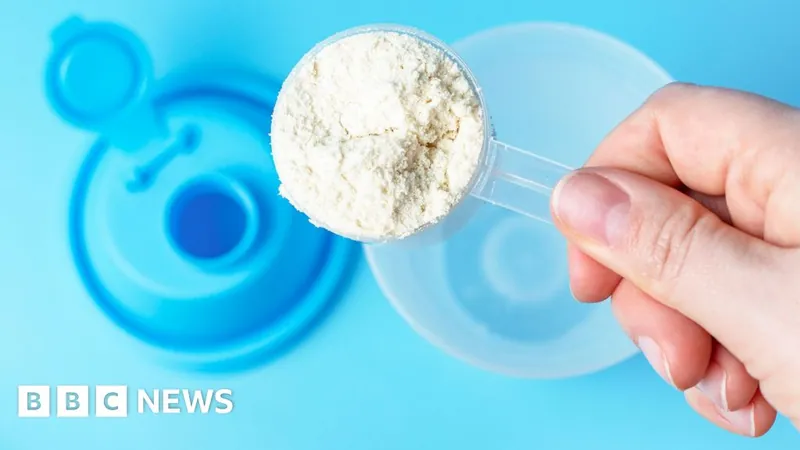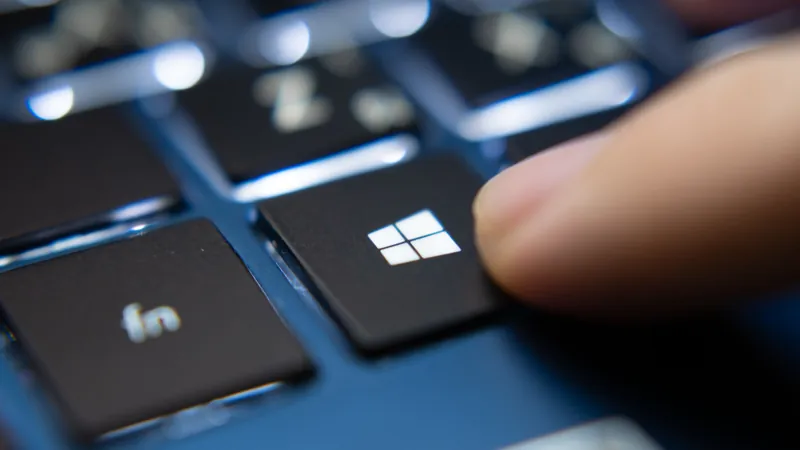
Can Creatine Wipe Out Your Brain Fog? Here’s What You Need to Know!
2025-09-20
Author: Amelia
Unlocking the Power of Creatine for Brain Health
Creatine—once strictly the go-to for bodybuilders—is now being hailed as a potential brain booster. This muscle-boosting supplement, originally made famous in the 90s for enhancing athletic performance, has found its way into the homes of everyday women, particularly those navigating the challenging waters of perimenopause.
The Science Behind Creatine
Known for its ability to enhance muscle mass and strength, creatine is one of the most-studied supplements in history. Dr. Henry Chung, a sport and exercise scientist, explains the shift from elite sports to mainstream use, noting that the focus has evolved from whether to take it to how and when.
But its benefits extend beyond the gym. Emerging research suggests that creatine could improve short-term memory, focus, and—interestingly—help clear the dreaded brain fog that many experience due to various factors, including hormonal changes in perimenopause.
Real Stories: Creatine in Action
Katie Mansell, a vibrant 46-year-old mother and CFO, shares how creatine transformed her daily life. Struggling with fatigue and lack of focus due to perimenopause, she decided to try this supplement on a friend's recommendation. After just three months of daily use, she's noticed remarkable improvements in her mood, motivation, and mental clarity.
Can Creatine Really Help with Brain Fog?
While Katie’s experience is promising, the benefits of creatine are not universal. Dr. Susan Kleiner points out that past research predominantly featured male subjects, omitting crucial female biological factors. But as studies broaden, scientists are uncovering how creatine may not just enhance muscles, but also optimize reproductive and brain functions.
What the Experts Are Saying
Professor Trevor McMorris, a seasoned researcher in the field, suggests that creatine could offer relief for those experiencing brain fog, similar to the benefits observed in sleep-deprived individuals. However, he cautions that results may only appear under specific stress conditions, like low dietary creatine intake.
Proceed with Caution
Despite the potential benefits, Dietician Lucy Upton warns that the popularity of creatine could lead to increased side effects for users, ranging from stomach upsets to more severe reactions in individuals with kidney issues. For those interested, a trial might be beneficial, but it's wise to consult a healthcare provider, especially if there are pre-existing conditions.
The Verdict: To Try or Not to Try?
While Dr. Chung sees no harm in healthy adults giving creatine a go, he emphasizes that it is not a miracle cure. As for me? After a month-long attempt that yielded little result—thanks to that pesky brain fog—I'm tempted to give creatine another shot. The jury is still out, but the evolving research landscape makes this an exciting area of exploration!









 Brasil (PT)
Brasil (PT)
 Canada (EN)
Canada (EN)
 Chile (ES)
Chile (ES)
 Česko (CS)
Česko (CS)
 대한민국 (KO)
대한민국 (KO)
 España (ES)
España (ES)
 France (FR)
France (FR)
 Hong Kong (EN)
Hong Kong (EN)
 Italia (IT)
Italia (IT)
 日本 (JA)
日本 (JA)
 Magyarország (HU)
Magyarország (HU)
 Norge (NO)
Norge (NO)
 Polska (PL)
Polska (PL)
 Schweiz (DE)
Schweiz (DE)
 Singapore (EN)
Singapore (EN)
 Sverige (SV)
Sverige (SV)
 Suomi (FI)
Suomi (FI)
 Türkiye (TR)
Türkiye (TR)
 الإمارات العربية المتحدة (AR)
الإمارات العربية المتحدة (AR)